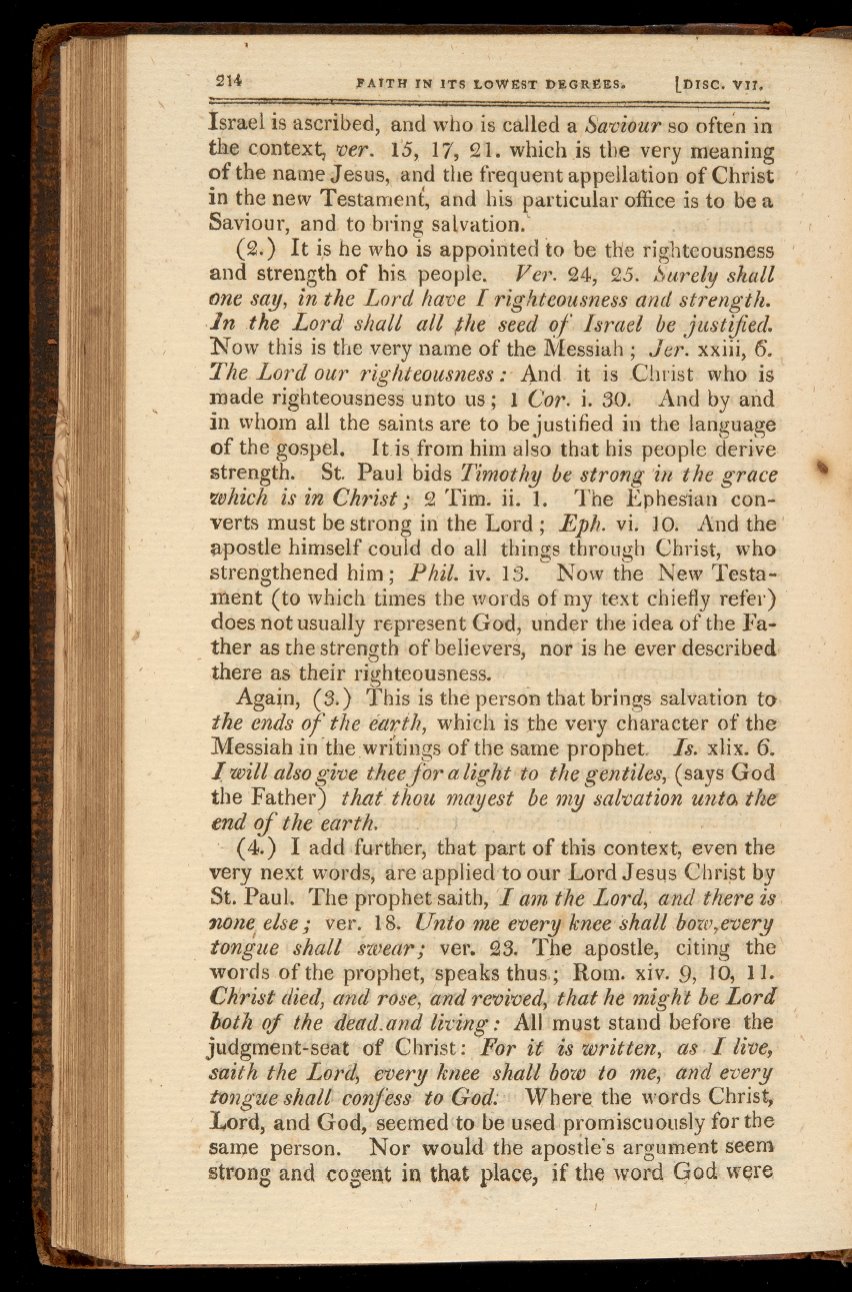

214
FAITH
IN ITS LOWEST
DEGREES.
1fISC. VII.
Israel
is
ascribed, and
who
is
called
a
Saviour
so
often in
the context, ver.
15,
17,
21.
which
is
the
very
meaning
of
the name
Jesus,
and the
frequent
appellation of
Christ
in the
new
Testament, and
his
particular
office
is
to be
a
Saviour,
and.
to
bring salvation.'
(2.)
It
is
he
who is
appointed
to
be the righteousness
and strength
of
his
people,
Per.
24, 25.
Surely
shall
one say,
in
the
Lord
have
I
righteousness
and
strength.
In
the
Lord
shall
all
the
seed
of
Israel
be
justified.
Now
this
is
the very name
of
the
Messiah
;
.Ier.
xxiii, 6.
The.
Lord
our
righteousness
:
And it
is
.Christ
who is
made
righteousness unto
us;
1
Cor.
i.
30.
And
by
and
in
whom
all the
saints
are
to be
justified
in
the
language
of
the gospel.
It.is
from
him also
that
his
people
derive
strength.
St.
Paul
bids Timothy
be
strong
in the
grace
which is in
Christ;
2
Tim.
ii.
1.
The Ephesian con-
verts must
be
strong
in
the Lord
;
Eph.
vi. 10.
And
the
apostle himself
could do
all
things through Christ, who
strengthened
him
;
Phil.
iv. 13.
Now the
New
Testa-
ment
(to
which times
the
words
of
my
text
chiefly
refer)
does
not
usually
represent
God, under the idea of
the
Fa-
ther
as the
strength
of
believers,
nor
is
he ever
described
there
as
their
righteousness.
Again,
(3.)
This
is
the person
that
brings salvation to
the
ends
of
the
earth,
which
is
the
very
character of the
Messiah
in-the writings
of
the
same
prophet. Is.
xlix. 6.
I
will
also
give
thee
for
a
light
to
the gentiles,
(says
God
the Father)
that
thou mayest
be
my
salvation
unta
the
end
of
the
earth.
.
(4.) I
add
further,
that
part of
this
context,
even
the
very
next
words,
are
applied' to
our Lord Jesus Christ
by
St.
Paul. The prophet
saith,
'I
am
the
Lord,
and there
is
none,
else;
ver.
18.
Unto
me
every
knee
shall.bow,every
tongue
shall swear;
ver.
23.
The
apostle, citing
the
words
of
the
prophet, speaks
thus.;
Rom.
xiv.
9,
10,
11.
Christ
died,
and
rose,
and
revived,
that
he
might
be
Lord
both
of
the
dead.and
living:
All
must stand
before the
judgment
-seat
of
Christ
:
For
it
is
written,
as
I
live,
saith
the Lord, every
knee
shall
bow
to
me,
and
every
tongue
shall
confess to God.
Where_
the words Christ,
Lord, and God,
seemed to
be used
promiscuously for the
same person.
Nor would
the apostle's
argument
seem
strong and cogent in
that
place,
if
the
word
God
were

















